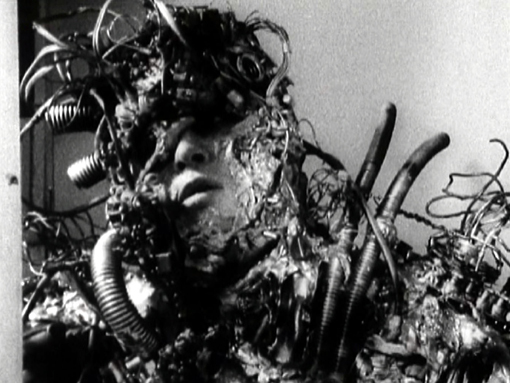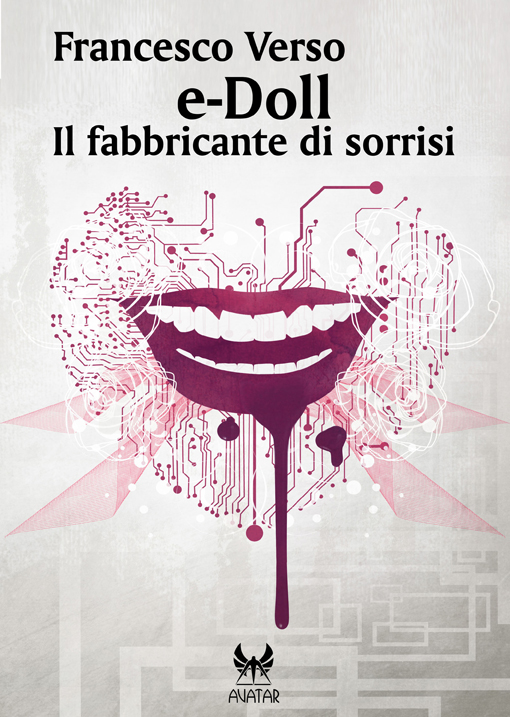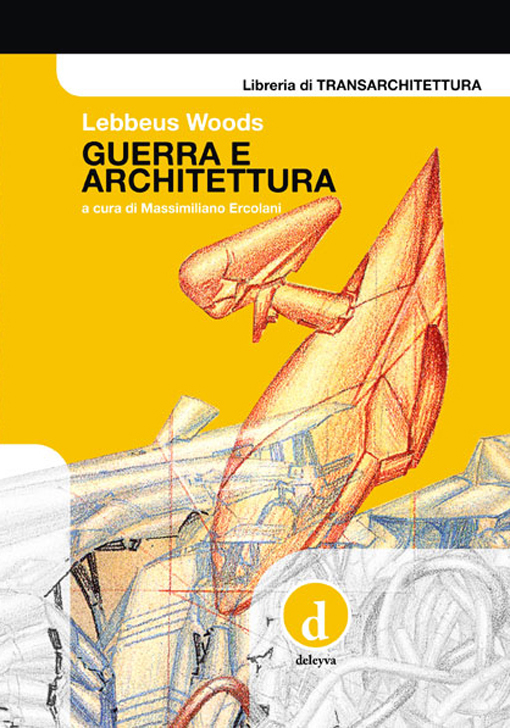PAPER BASTARDS

By Emmanuel Jonathan Pilia
STEP1 BODIES
What exactly is disgust? The quick answer is obviously the lack of taste. A deficiency that occurs with a presence, namely that of horror. We feel revulsion toward something that is absent, as well as something that is immanent. A missing eye, a missing limb, missing part of the skull, as well as an unwanted appendage, a wound, a blister. But also the loss of the ability of our body to retain our fluids, feces, pus, blood, to control the expressions of our face or the movements of our body. As we are disgusted by the high elastic capacity of some athletes, a body too tonic or too fat. So, we understand that the the things that disgust us, are those that are too much or too little. But at the same time is what attracts us, even sexually, involving our senses in a more direct way, without mediation. Sex, for example, is not only tact and excitement, but also and maybe mostly taste, sound, smell, pain, fear, loss of self consciousness, brutality. Isn’t the sexual act the quintessence of the union of an absence and a presence? If we insist on the ambiguous relationship between sexuality and disgust, it is interesting to see how this relationship has often been the focus of many stories related to cyberpunk. Perhaps, one of the most consistent is the extraordinary Tetsuo: The Iron Man, By Shinya Tsukamoto. The script is very simple: a man, a masochist who expresses his perversion by inserting metal objects into his body, is hit by a car, the driver, frightened, with the help of his girlfriend throws him into the woods. When they realize that the man is not dead, the couple starts having sex on the hood of the car. From this point on, the driver begins a gradual and inexorable transformation into a kind of strange cyborg. The metal springs from inside the body of the protagonist, losing, with each new upgrade, the remaining organic tissue. The references to sexuality are many and explicit, of which the most important is the most famous scene of the film, in which the man sees his own penis transformed into a huge auger with which he penetrates his partner dismembering her. For the rest of the movie, the man fights with the masochistic, until the two merge into one another creating a biomechanical being, the maximum expression of fetishism, in which disparate objects undertake the tasks that were previously single biological prerogatives. Cables, pipes and nails emerging from a bubbling synthetic brew. Shinya Tsukamoto takles with these issues in most of his cinematical productions, of which ,Shinya Tsukamoto: from cyberpunk to the mystery of the soul by Andrea Chimento and Paolo Parachini, remains the only opportunity for the italian reader to investigate further. A concerned and well-written text that addresses the idiosyncrasies and disgust of the Japanese director. Sexuality, meat, metal and death often meet in the territories of cyberpunk, and sometimes this appointment is scheduled with the meticulousness of the demiurge. A demiurge that has been grown in Italy, and that within a few years has won the two most prestigious awards of science fiction in Italy. Francesco Verso, with e-Doll, is the winner of the Urania prize, he reproposes an updated eBook edition for Kipple. The phenomenon spreads, giving life to the business of sex shops. Sex deprived of any kind of reproductive drive, becomes an instrument of social control: the brutality that society represses is unleashed in the act of sex. «The distribution of traces of blood is a typical mix of violence and pleasure that comes across even outside working hours. Two phenomena that often appear associated: extreme sex and a convulsive death, combined in a legal ideal». A bond that will involve every nuance that separates the organic from the inorganic, the male from the female.
STEP2 IDEOLOGIES

Disgust is an element of body feeling that cannot be separated from your body, even when what repels us is relegated to the domain of ideas. The immediate reaction is characterized by a specific facial expression, a desire to physically distance oneself from the idea of what one is witnessing, nausea, sweat, together with a possible incorporation of oral or nasal ideas. It is the answer that you have in the face of betrayal (of a promise one has made, of his or her partner, of a deal),it is the answer you get when faced with a memory (of an error, a tragedy, a suffered pain), it is the answer that you are faced with the very idea of failure (ones own or of others), it is the answer that you receive in the face of an opposing ideology. Of these ideologies, it is a west european point of view that always sees Nazism as the accumulation of the worst evils of our century,and it is difficult to get rid of this idea. It is no coincidence that Albert Speer’s book, Memories from the Third Reich, had such violent reactions. Speer was the only one among the Nazi leaders to take full moral responsibility for the extermination of the Jews. After spending twenty years in Spandau prison, he wrote his best seller. The reasons to find Speer’s words repulsive are many, but honestly its Luddism is what bothers me the most: «Dazzled by the possibilities of technology, I served it in the decisive years of my life. Now, at the end of my life, she, Technology, is faced with Doubt». Prometheus did not push Nazi Germany in the war. It was Ares. Prometheus, accused of the worst cowardice, is the only god that offered us shelter: the most horrible thing that man can do is to blame his saviour to hide his own weakness and ambition. The eagle which feeds on the liver of those who sacrificed everything for us, bears the name of Albert Speer.
STEP3 THINGS

From these first steps there seems to be an indissoluble link between disgust, body and technology: in both Tsukamoto’s and Verso’s cyberpunk tecnology, in the first it invades our body, in the other our senses. For Speer, technology pushes us to impure actions. It is the violence of our world that impends on the human experience with such a force that man will never adapt to it. Things are immanent, no matter how much we try to abstract ourselves. And their immanence enters our experience beyond our control. Our only choice is an exercise in binary: be passive or not. Lebbeus Woods is perhaps the author who most strongly screams his revenge at reality. A reaction born from the sincere disgust of the transiency of things, innocent victims idiocy of a fratricidal war resolution passed off as ethnic.
Architecture and war are not incompatible.
Architecture is war. War is architecture.
I am at war with my time, with history, with all authority that resides in fixed and frightened forms.
I am one of millions who do not fit in, who have no home, no family, no doctrine, no firm place to call my own, no known beginning or end, no “sacred primordial site”.
I declare war on all icons and finalities, on all the stories that chain me to my own falseness, my own pitiful fears.
I know only moments, and lifetimes that are as moments, and forms that appear with infinite strength, then “melt into air”.
I am an architect, a constructor of worlds, a sensualist who worships the flesh, the melody, a silhouette against the darkening sky.
I do not know your name.
Nor you know mine.
Tomorrow, we begin together the construction of a city.
“War and Architecture” is re-read and graphically presented for the first time in Italy by Massimiliano Ercolani. This a few days ago, almost twenty years too late. An unforgivable delay for our nation, which was stripped of it’s pride, once again, with the destruction done in the Balkans.

STEP 1 CORPI
Che cos’è esattamente il disgusto? La risposta più immediata ha ovviamente a che fare con la mancanza di gusto, con un’assenza che si manifesta con una presenza, quella dell’orrore. Proviamo repulsione verso qualcosa che è assente, così come per qualcosa che è presente. Un occhio mancante, un arto, parte del cranio, così come per un’appendice indesiderata, una piaga, una vescica. Ma anche la perdita di capacità del nostro corpo, di trattenere i nostri fluidi, feci, pus, sangue, di controllare le smorfie del nostro volto o i movimenti del nostro corpo. Così come ci disgusta l’elevata capacità elastica di alcuni atleti, un corpo fin troppo tonico o fin troppo grasso. Così capiamo che ciò che ci repelle, ciò che ci disgusta è il troppo, o il troppo poco. Ma è al contempo ciò che ci attrae, anche sessualmente, coinvolgendo in maniera ancora più diretta, priva di mediazioni, il nostro sentire. Il sesso, ad esempio, non è solo tatto ed eccitazione, ma anche, e forse soprattutto, gusto, udito, olfatto, dolore, paura, privazione del sé cosciente, brutalità. Dopotutto, cos’è l’atto sessuale se non la quint’essenza dell’unione di un’assenza e di una presenza? Insistendo sull’ambiguo rapporto tra sessualità e disgusto, è interessante scoprire come questo sia stato spesso al centro di molte narrazioni legate al genere cyberpunk. Tra queste, forse una delle esperienze più coerenti è lo straordinario Tetsuo: The Iron Man, film del 1989 di Shinya Tsukamoto. La sceneggiatura è ridotta al minimo: un uomo, un masochista la cui perversione è sfogata tramite l’auto innesto di oggetti metallici nel proprio corpo, è investito da un automobilista, il quale, spaventato, lo getta assieme alla propria ragazza in un bosco. Appena si accorgono che l’uomo non era morto, i due iniziano un rapporto sessuale sul cofano della macchina. Da questo momento in poi, l’autista inizia una graduale e inesorabile trasformazione in una sorta di strano cyborg. Il metallo sgorga dall’interno del corpo del protagonista, facendo perdere, a ogni nuovo upgrade, parte del tessuto organico rimasto. I riferimenti alla sessualità sono molti ed espliciti, di cui il più importante è sicuramente rappresentato dalla scena più famosa del film, nella quale l’uomo vede perdere il proprio pene a vantaggio di un’enorme trivella, con la quale penetrerà, smembrandola, la propria compagna. Per il resto del film, l’uomo si scontra il masochista creduto morto, fino a ché i due non finiscono per fondersi in un unico essere biomeccanico, massima espressione feticistica, in cui oggetti tra i più disparati vanno ad assumere le funzioni che anticamente erano a unico appannaggio della biologia. Cavi, tubi e chiodi emergono da una gorgogliante brodaglia sintetica. Questi temi sono affrontati in molta della produzione cinematografica di Shinya Tsukamoto, di cui Shinya Tsukamoto: dal cyberpunk al mistero dell’anima, di Andrea Chimento e Paolo Parachini, rimane l’unica possibilità per il lettore italiano di approfondimento. Un testo interessate e ben scritto, che affronta le idiosincrasie e i disgusti del regista nipponico. Sessualità, carne, metallo e morte si danno spesso appuntamento nei territori del cyberpunk, e a volte quest’appuntamento è pianificato con la puntigliosità del demiurgo. Un demiurgo che è stato coltivato in Italia, e che nell’arco di una manciata d’anni ha conquistato i due più importanti premi di fantascienza dello stivale. Francesco Verso, con il suo e-Doll, vincitore del premio Urania, ripropone per la Kipple una versione aggiornata in formato eBook. In una Mosca non troppo distante dal nostro tempo, il governo ha deciso di liberalizzare l’uso di androidi e ginoidi sessuali, come valvola di sfogo di una sempre maggior violenza urbana. Il fenomeno dilaga, dando alla vita il business delle sessoteche. Il sesso, privato definitivamente di ogni pulsione riproduttiva, diviene strumento di controllo sociale: la brutalità che la società reprime trova sfogo nel sesso. «La distribuzione degli schizzi è tipica del melange di violenza e piacere in cui si imbatte anche fuori dell’orario di lavoro. Due fenomeni che compaiono spesso associati: sesso spinto e morte convulsa, uniti in un legale ideale». Un legame che coinvolgerà ogni sfumatura che divide l’organico dall’inorganico, il maschile dal femminile.
STEP2 IDEOLOGIE
Il disgusto è un elemento del sentire corporeo che non può prescindere dal proprio corpo, anche quando ciò che ci ripugna è relegato al dominio delle idee. La risposta immediata è caratterizzata da un’espressione facciale specifica, un desiderio di allontanarsi fisicamente dall’idea di cui si sta assistendo alla messa in scena, nausea, sudore, unita a una possibile incorporazione orale o nasale delle idee. È la risposta che si ha di fronte al tradimento (della parola data, della propria compagna o del proprio compagno, dei patti stipulati), è la risposta che si ha di fronte al ricordo (di un errore, di una tragedia, di un dolore patito), è la risposta che si ha di fronte all’idea stessa di fallimento (proprio o altrui), è la risposta che si ha di fronte all’ideologia avversa. Di queste ideologie, il senso comune occidentale vede sempre il nazismo come il coacervo dei peggiori mali del nostro secolo, ed è difficile uscire fuori da quest’idea. Non è un caso che la reazione del libro di Albert Speer, Memorie del Terzo Reich, abbia avuto reazioni così violente, e da più fronti. Unico tra i gerarchi nazisti ad assumersi la completa responsabilità morale per lo sterminio degli ebrei, scriverà il suo best seller dopo aver scontato venti anni nel carcere di Spandau. I motivi per trovare ributtante le parole di Speer sono molteplici, ma sinceramente il mal velato luddismo che si leggono dalla sua apologia sono le più sgraziate: «Abbagliato dalle possibilità della Tecnica, l’ho servita negli anni decisivi della mia esistenza. Ora, al termine di questa mia esistenza, essa, la Tecnica, trova davanti a sé il Dubbio». Non è stato Prometeo ad aver spinto la Germania nazista in guerra ma Ares. Prometeo, accusato delle peggiori viltà, è l’unico tra gli dei ad averci offerto riparo: il gesto più orribile per un uomo è incolpare il suo salvatore, per coprire la propria debolezza e ambizione. L’aquila che si nutre del fegato di chi ha sacrificato tutto per noi, porta il nome di Albert Speer.
STEP3 COSE
Da questi primi passaggi sembra esserci un legame indissolubile tra disgusto, corpo e tecnologia: nel cyberpunk di Tsukamoto, la tecnologia invade il nostro corpo, così come in quella di Verso invade il nostro sentire. Per Speer la tecnologia ci spinge ad azioni tra le più impure. È la violenza del nostro mondo a incombere sull’esperienza umana con una potenza a cui l’uomo non potrà mai abituarsi. Le cose, per quanto ci possiamo astrarre da loro, sono immanenti. E la loro immanenza entra nella nostra esperienza spesso al di là della nostra volontà. La nostra unica scelta risiede in un esercizio binario: essere passivi, oppure no. Lebbeus Woods è forse l’autore che con più forza lancia il suo grido di vendetta sul reale. Una reazione nata dal sincero disgusto verso la caducità delle cose, incolpevoli vittime dell’idiozia di una guerra fratricida spacciata per risoluzione etnica.
Architettura e guerra non sono incompatibili.
Architettura è guerra.
Guerra è architettura.
Sono in guerra con il mio tempo, con la storia, con tutte le autorità che risiedono nella fissità delle forme.
Sono uno dei milioni di individui che non ci stanno, che non hanno casa, senza famiglia, senza fede, nessun luogo sicuro da poter considerare mio, non conosco l’inizio o la fine, nessuno “sacro luogo primordiale.
Dichiaro guerra a tutte le icone ed a tutti i fini, dichiaro guerra a tutte le storie che mi incatenano alle mie stesse menzogne, alle mie pietose paure.
Conosco solo momenti, e vite che sono come momenti, e forme che sembrano avere una forza infinita, fino a quando “si fondono con l’aria”.
Sono un architetto, un costruttore di mondi, un sensuale adoratore della carne, la melodia, una figura che si staglia contro il cielo oscuro.
Non conosco il tuo nome.
Né tu il mio.
Domani, inizieremo insieme la costruzione di una città.
“Guerra e architettura” viene riletto graficamente e portato per la prima volta in Italia da Massimiliano Ercolani. Questo pochi giorni fa, con quasi vent’anni di ritardo. Un ritardo imperdonabile per la nostra nazione, che si è spogliata del suo orgoglio, ancora una volta, con lo scempio compiuto nei Balcani.






